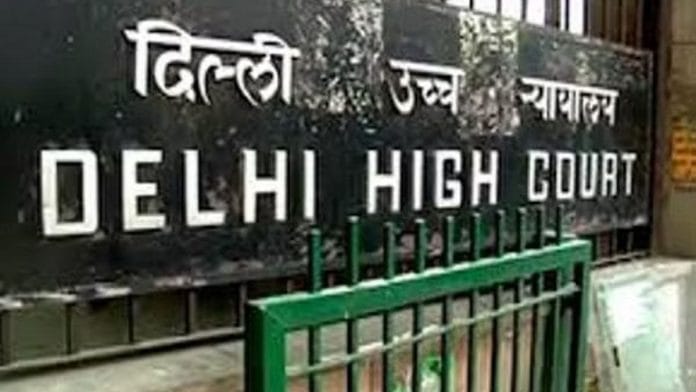New Delhi: The Delhi High Court has reprimanded the Centre for its “rather casual manner” in ordering a probe by the Serious Fraud Investigation Office (SFIO) into the affairs of Moser Baer India Limited (MBIL) and its ex-directors Nita Puri, the sister of the ex-CM of Madhya Pradesh Kamal Nath, and her son Ratul Puri.
The Ministry of Corporate Affairs (MCA) ordered the SFIO probe into Moser Baer Ltd in September last year on charges ranging from willful default, fund diversion, and suspicious transactions with related parties.
Last week, hearing a petition by Nita Puri, the Delhi HC quashed the MCA order. Nita Puri, earlier, challenged the initiation of SFIO proceedings against Moser Baer Ltd, stating that the legal action relied on an already-discarded forensic audit report. In February 2024, a Delhi HC division bench discarded the report, holding that the auditors had not investigated the source of the funds allegedly diverted to MBIL subsidiaries.
The audit was done during the insolvency proceedings against Moser Baer India at the request of the National Company Law Tribunal (NCLT)-appointed Insolvency and Resolution Professional (IRP).
The Delhi HC’s reprimand comes months after Nita Puri won a reprieve in the Central Bureau of Investigation and Enforcement Directorate cases against her former company on similar charges. Earlier, a Special court in Delhi, hearing the cases, quashed the allegations against MBIL, its directors, and office-bearers.
In the hearing last week, the HC observed that invoking an order under Section 212(1)(c) of the Companies Act, which empowers the Centre to initiate an SFIO probe into any company’s affairs in public interest, has grave consequences.
“It is therefore imperative that such an order must be issued only after due application of mind, after examining all relevant circumstances,” Justice Sachin Datta observed in the latest judgment.
Exercise of power under Section 212(1)(c) in a casual or perfunctory manner seriously undermines the statutory provision, as well as the safeguards implicit thereunder, the court said. It added that the use of boilerplate language and/or extrapolations from third-party documents, without consideration of all the “relevant circumstances”, reflects a disregard for procedural propriety.
“It can hardly be emphasised enough that the power [given] under Section 212(1)(c) must be exercised with circumspection and deliberation. In the present case, the impugned order under Section 212(1)(c) appears to have been issued in a rather casual manner, unmindful of the statutory prerequisites therefor,” Justice Sachin Datta said.
‘Wholesale disregard of a binding judgment’
The Delhi HC took into account Nita Puri’s contention that the ministry’s order for the SFIO probe depended on two forensic audit reports—one by GSA & Associates, and the second by Kashyap Sikdar & Co, with the former finding Moser Baer India Limited (MBIL) with preferential, undervalued, extortionate and fraudulent transactions. A division bench of the Delhi HC previously discarded those reports while deciding Ratul Puri’s plea challenging a Bank of Baroda declaration that he was a “wilful defaulter” based on those reports, according to the counsels of Nita Puri.
In the present case, the Delhi HC stated that the division bench, in its judgment last year, raised doubts about the credibility of the forensic reports and made scathing observations on making conclusions based on the reports. In June 2019, the NCLT Resolution Professional-appointed GSA Associates submitted its report after an audit between April 2012 and March 2015.
The court observed that the grounds for the SFIO probe—diversion, siphoning, and investments or receivables with respect to the transactions with subsidiaries, including sales or service, receivables, loans, advances, investments, write off/provisioning, etc.—were similar to the BoB’s charges in its showcause notice to Ratul Puri. However, the HC division bench earlier quashed the BoB showcause, which relied on the forensic report by GSA Associates, stating the report did not take into account the source of investments made in the subsidiaries, as that was before the audit period.
“The very genesis of ‘diversion’ or ‘siphoning of funds’ is dependent on the funds being ‘borrowed funds’. The reliance placed by the respondent bank on the forensic audit report has been, clearly, misconceived. The forensic audit report does not record any conclusion regarding diversion or siphoning of funds, qua the petitioner,” the Delhi High Court had said in an earlier February 2024 judgment. “The reliance placed by the respondent-bank on the Forensic Audit Report to issue a show cause notice of wilful default to the petitioner is clearly misplaced.”
In the present case, the Delhi HC said that it had already considered and rejected the allegations of siphoning of funds through subsidiaries—the scope of the SFIO probe, as well—in its Bank of Baroda judgment. Hence, the “scope, import and consequences” of the previous judgement ought to require consideration before ordering an SFIO probe.
For this reason, the ministerial order for an SFIO probe fails to withstand judicial scrutiny, the court remarked.
“In the present proceedings, while this court is not required to go to the extent of adjudicating whether the petitioner’s inference, as regards the judgment dated 29.02.2024 in W.P.(C) 4181/2023, is justified, it is apparent that the said judgment, which deals with allegations regarding siphoning of funds/alleged ‘PUFE’ transactions, was like ‘relevant material’ that ought to have had been considered, before issuance of the impugned order,” the court observed.
“It is theoretically possible that the central government may have arrived at the same ‘opinion’, even after consideration of the said judgment. However, the wholesale disregard/non-consideration of a binding judicial pronouncement, which makes copious observations as regards the very same audit report/s, on which the impugned order is founded, cannot be countenanced,” it further observed.
(Edited by Madhurita Goswami)






